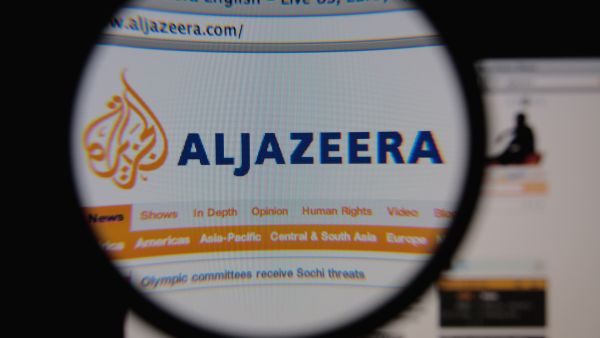In a region with a historically low record of freedom of the press, especially in the GCC monarchies that only show at the end of worldwide ranks, it's quite bizarre to see a leading news outlet draw some sharp criticism of policies promoted by their funders.
"We've not been paid since April 1 as we've not been working since then [due to the coronavirus pandemic]."
— Al Jazeera English (@AJEnglish) August 26, 2020
How wage abuse is hurting Qatar's migrant workers https://t.co/MEIcu3mKxh pic.twitter.com/2dlEvNeH8F
Last week, the English platform of the Qatari-funded Al-Jazeera published a thorough report about human rights abuses witnessed by migrant workers in the country, a topic that has for long threw the GCC state under global backlash.
The new report chronicled increased pressure on migrant workers, especially amid the Coronavirus crisis, such as salary delays and halting payments of dues. Being conducted and published by Al-Jazeera, the report came as a surprising sign of a relatively more tolerant approach on behalf of Qatar; when it comes to media reporting on worsening conditions of its migrant workers.
Many social media commentators rushed to salute Al-Jazeera's report as it detailed aspects of the painful reality lived by thousands of workers, who have had to suffer for months, hailing the Qatari media platform as "fair and free."
كلام فاضي ، يعني الجزيرة بتتكلم عن حقوق العمال في قطر؟ ?
— عبدالعزيز الدغيم (@AzizRashed0) August 27, 2020
Translation: "Nonsense! Are you saying that Qatar is talking about workers' rights in Qatar?"
Great ? you talked about this plague! And, believe me the contractors managing this exploitation racket are themselves immigrant workers!!
— Ex-Intellectual (@NotSoIntel) August 26, 2020
I firmly believe that #Qatar government won’t mind giving respectable wages should there be transparency in the middle men handling
Very soon though, Arabic-speaking commentators realized that the Arabic platform of Al-Jazeera continued to ignore the English report and didn't mention it neither online nor on TV, which they said speaks of Qatari hypocrisy painting one image to its western audience, while painting another one for the Arab viewers.
ازدواجية #الجزيرة.. تتجاهل انتهاكات #تميم في حق العمال بالعربية وتدينها بالإنجليزية#قطر#ملفات_عربيةhttps://t.co/3NpPxFZNpv
— ملفات عربية (@arabfile) August 29, 2020
Translation: "Al-Jazeera's double standards: Ignore's Tamim's violations of workers' rights in Arabic but condemns it in English."
Even more interesting was the fact that the same website and the same reporter published another article four days later, celebrating legislation that was just taken by the Qatari government to help ease workers' adversity, including scraping a former rule that required employers' permission before a worker can change their jobs, and set a 1000 Qatari Riyal minimum wage for everyone.
Qatar announces sweeping labour reforms, including ending the controversial 'kafala' system https://t.co/Vj1SEMlS2D pic.twitter.com/pNOBtJvN6i
— Al Jazeera English (@AJEnglish) August 30, 2020
In the new report, government decisions were portrayed as a victory for human rights and legal reforms in the country.
The timing of the two reports and the unprecedented incident, in which Al-Jazeera was able to report on the negative conditions lived by foreign workers in Qatar, could mean that it all falls into a carefully planned arrangement to portray Qatar as not only open to criticism and sponsor of press freedom but also as a government that quickly responds to needs of its population.
Sudden deaths of hundreds of migrant workers in Qatar not investigated https://t.co/YwJBOZqAS0
— The Guardian (@guardian) October 7, 2019
Over the past ten years, HRW and other international organizations had repeatedly reported inhumane conditions experienced by blue-collar workers in Qatar, especially ones working on building sports facilities that are set to host events of the 2022 FIFA World Cup in the country.







